A year ago, Ho Chi Minh City Children's Hospital 1, as well as several other obstetric and pediatric medical facilities in the city, was in a state of shortage of Gamma globulin to treat hand, foot and mouth disease. Although it is a city hospital, but in its role as a final medical facility treating pediatric patients in the southern provinces, the hospital had to receive many pediatric patients transferred from neighboring localities. Most of these cases had to be transferred due to the severity of the disease, and due to the lack of drugs at lower-level medical facilities. Faced with the overload of hand, foot and mouth disease cases, the hospital's drug reserves were sometimes not timely enough to supply for treatment.
According to Master, pharmacist Nguyen Thi Bich Nga, Head of Pharmacy Department, Children's Hospital 1, Ho Chi Minh City, the shortage of Gamma globulin is not due to the lack of legal documents in procurement but mainly due to the broken supply chain due to not being able to import drugs to Vietnam in time.
“We have regularly reviewed the drug inventory situation, grasped the number of drugs purchased under valid contracts, including listening to supply news and monitoring disease forecasts to reserve drugs. However, there are situations that arise beyond our expectations. For example, in 2023, 13 suppliers with circulation licenses to supply Gamma globulin to treat hand, foot and mouth disease were all unable to supply enough, so we proactively asked for opinions from the Department of Health and the Ministry of Health to have drugs supplied to hospitals to fight the epidemic. In fact, Gamma globulin is a rare drug, and the shortage for many years is due to a lack of suppliers, not because legal documents have not been issued in time for bidding and procurement,” Ms. Nga said.
Gamma globulin is a rare drug, lacking for many years due to lack of suppliers, not because legal documents have not been issued in time for bidding and procurement.
Master, pharmacist Nguyen Thi Bich Nga, Head of Pharmacy Department, Children's Hospital 1, Ho Chi Minh City
Having gone through the hottest period of special drug shortage, Master Nguyen Thi Bich Nga said that with conventional drugs, the hospital basically did not lack. The most shortage period was due to many objective factors and while waiting for the Government and the Ministry of Health to guide, the hospital had planned to bid in advance.
Another story that is considered the hottest in 2023 in this area in particular, the whole country in general, especially in central hospitals, is the situation of a series of CT scanners being "shelved" due to lack of replacement materials. The hospital cannot conduct bidding because the regulation requires 3 quotations.
An officer working at the medical equipment bidding unit of the University of Medicine and Pharmacy Hospital in Ho Chi Minh City cited: “A CT scanner bulb costs about 2-4 billion VND. On average, the bulb of this machine must be replaced once every 1-2 years. The requirement to make 3 quotes before purchasing is a challenge for medical facilities. No unit dares to purchase because the nature of this equipment system is that each brand of machine must use its own bulb, so only one quote can be made.”
Some modern equipment had to stop working due to the inability to bid and purchase chemicals and replacement materials.
Some modern equipment had to stop working due to the inability to bid and purchase chemicals and replacement materials.
After the Government issued Decree 24/2024/ND-CP dated February 27, 2024, only one quotation is needed to build a planned price instead of having to have 3 quotations as before. Accordingly, hospitals have boldly purchased to serve the timely examination and treatment of patients and at the same time solve the problem of wasting unused equipment.
As the medical facility with the largest number of patients in the southern provinces, Ho Chi Minh City University of Medicine and Pharmacy Hospital receives an average of 7,000-8,000 outpatients and more than 1,000 inpatients per day. Ensuring adequate medicine, supplies, and medical equipment for examination and treatment is a very urgent problem.
Sharing about the difficulties that the unit had encountered in the past when there were no new Laws, Decrees, and Circulars, Associate Professor, Doctor Nguyen Minh Anh, Deputy Director of the Hospital, said that the most difficult thing about bidding and purchasing is getting the planned price of the bidding categories with the regulation requiring at least 3 quotations and the lowest bid. Besides, if in the bidding list, there is only one type of quotation that cannot be selected or the low price affects the whole package, the bidding package cannot be implemented.
Ho Chi Minh City University of Medicine and Pharmacy Hospital receives an average of 7,000-8,000 outpatients and about 2,000 inpatients per day.
Ho Chi Minh City University of Medicine and Pharmacy Hospital receives an average of 7,000-8,000 outpatients and about 2,000 inpatients per day.
Regarding medical supplies and equipment, many items can only get one quote on the market because they are related to the supplier of the machine and the chemical. After many legal problems in purchasing, many units are hesitant because even asking for a quote from the contractor is not easy.
However, up to now, Mr. Minh Anh affirmed that with the regulation allowing to take one quotation, in case the hospital collects more than one quotation, the highest quotation will be taken as the planned price on the basis of being suitable with the professional requirements and financial capacity of the hospital, the hospital basically has not lacked medicine, supplies, and equipment because the planning work is built all year and the bidding is conducted continuously. There are mainly small bottlenecks in the bidding work of medical supplies and equipment due to grouping to conduct bidding.
“According to the latest reported data, the hospital's bidding and purchasing rate has reached 80%. The remaining 10-20% are not subjective internal problems but are due to objective problems in the supply chain; the winning bid items are applying for renewal of drug registration licenses. These are problems beyond the scope of the hospital and the Ministry of Health. However, they do not seriously affect the hospital. We always have solutions to replace drugs with equivalent therapeutic effects, and patients receive relatively stable treatment,” said Mr. Minh Anh.
-----------------------------------
According to the latest reported data, the hospital's bidding and purchasing rate has reached 80%. The remaining 10-20% are not subjective internal problems but are due to objective supply chain issues, outside the scope of the hospital and the Ministry of Health. However, that number does not seriously affect the hospital. We always have alternative solutions for drugs that are equivalent in terms of treatment effects, and patients receive relatively stable treatment.
------------------------------------------
Associate Professor, Dr. Nguyen Minh Anh, Deputy Director of University of Medicine and Pharmacy Hospital, Ho Chi Minh City
At Cho Ray Hospital, on average, about 5,000-6,000 outpatients and more than 1,000 inpatients are admitted each day. According to specialist 2 Pham Thanh Viet, Deputy Director of Cho Ray Hospital, the drug shortage is mainly related to the disruption of the world supply chain. Domestic drug manufacturers are also slow to supply due to a lack of imported raw materials. "The drug shortage is actually due to the origin, not due to a lack of legal regulations or the hospital not having enough capacity to buy for patients," said Dr. Viet.
According to Mr. Viet's analysis, the consecutive incidents in the health sector related to bidding make facilities more cautious, especially when the law does not have clear and specific regulations in the cases. There are specific regulations on cases of designated bidding. "However, designated bidding is open to units that are lacking but no one dares to do it because of the problem of explanation," Mr. Viet expressed.
Specialist Doctor 2 Pham Thanh Viet, Deputy Director of Cho Ray Hospital.
Specialist Doctor 2 Pham Thanh Viet, Deputy Director of Cho Ray Hospital.
In response to the question of whether the hospital lacks drugs, an officer in charge of pharmaceutical bidding said that Cho Ray Hospital still has this situation, but it is mainly due to objective reasons, such as the drug price is too cheap, no unit participates in the bidding; or the drug is rare and has only a few suppliers; or there are units that win the bid but when it comes time to deliver the drugs and supplies, they cannot import the goods due to a broken supply source, extending the supply time to 4-5 months. In these cases, if there is no alternative drug, it is very difficult for the hospital to fully supply and the hospital cannot terminate the bidding package to re-bid.
“Our hospital’s maxillofacial unit is currently unable to bid for dental anesthetics because the number of patients coming to this department is very low. Even for vitamin C, we have bid several times but no unit participated or did not win the bid. Some drugs such as antidotes or BAT are not always available. The hospital has to spend time looking for a source of supply,” this person cited.
Source: https://nhandan.vn/thuc-trang-kho-dau-thau-mua-sam-tai-cac-benh-vien-post838371.html




![[Photo] Closing of the 14th Conference of the 13th Party Central Committee](https://vphoto.vietnam.vn/thumb/1200x675/vietnam/resource/IMAGE/2025/11/06/1762404919012_a1-bnd-5975-5183-jpg.webp)

![[Photo] Prime Minister Pham Minh Chinh receives the delegation of the Semiconductor Manufacturing International (SEMI)](https://vphoto.vietnam.vn/thumb/1200x675/vietnam/resource/IMAGE/2025/11/06/1762434628831_dsc-0219-jpg.webp)

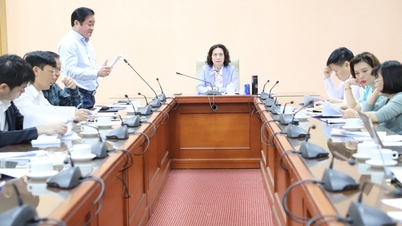



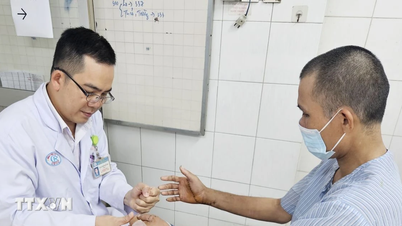

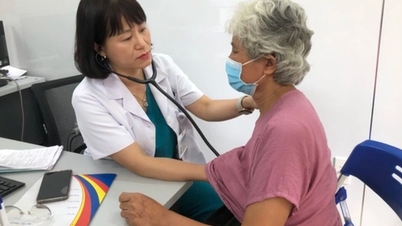
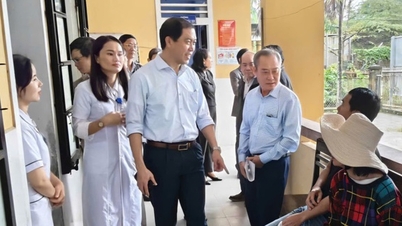
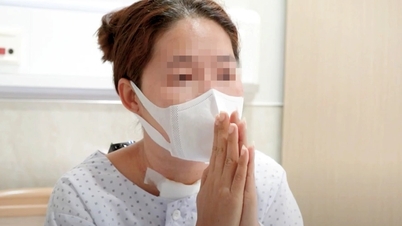




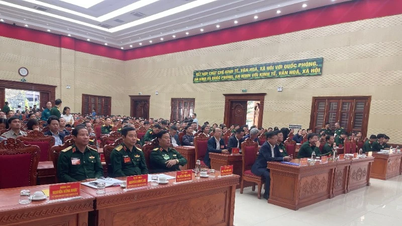












































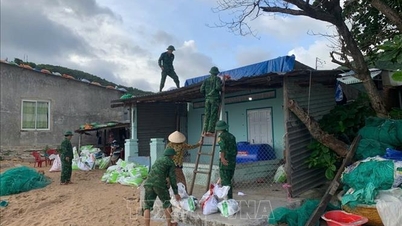

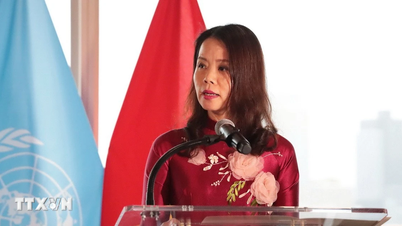
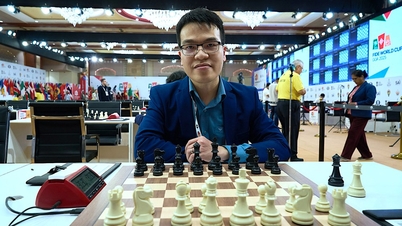



































Comment (0)